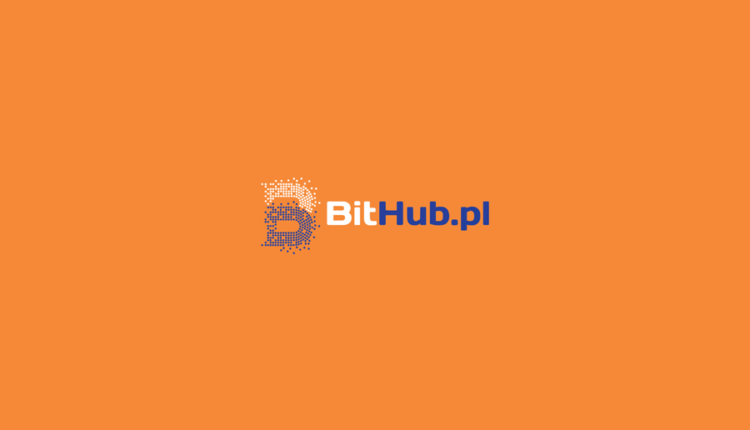
#SundayInterview. Governments are getting ready for blockchain revolution
Blockchain allows for building a world that is much more transparent, provides better trust model and easier audibility, thus saving money which is what everyone is aiming for – says Marta Piekarska, Director of Ecosystem, Hyperledger in Bithub.pl’s #SundayInterview.
Why has The Linux Foundation engaged in blockchain development? Do you think it will soon be the new dominating paradigm all through the internet?
Marta Piekarska: For the last 16 years, The Linux Foundation has provided unparalleled support for open source communities through financial and intellectual resources, governance structure, IT infrastructure, services, events, and training. Dedicated to building sustainable ecosystems around open source projects, The Linux Foundation is working with the global technology community to solve the world’s hardest problems through open source and creating the largest shared technology investment in history. The Linux Foundation is the umbrella organization for more than 50 open source projects accelerating open technology development and commercial adoption. Some of the game-changing initiatives hosted by The Linux Foundation include: OpenChain, LetsENcrypt or CloudFoundry.
About 18 months ago people started approaching us asking „What about Blockchain?”. So partners from across industries came together and created Hyperledger – the blockchain project within Linux Foundation. Hyperledger incubates and promotes a range of business blockchain technologies, including distributed ledger frameworks, smart contract engines, client libraries, graphical interfaces, utility libraries and sample applications.
Will it be the new dominating paradigm? We don’t see ourselves as competitive to any other consortium or platform in the space. We want to collaborate and provide reference code for everyone. Blockchain is a PEER TO PEER network, by definition you need PEERS to create it, you cannot try being alone on a blockchain.
Can you be more specific about what Hyperledger really is? You say on your website it’s „open source collaborative effort created to advance cross-industry blockchain technologies” but what’s the original idea here?
MP: Hyperledger is building a worldwide community around thriving software. For a variety of reasons, most organizations that engage with Hyperledger projects ultimately join as members. The organizations involved want to ensure the success of Hyperledger business blockchain technologies, because they are building products, services and solutions on top of our code bases that are critical to their lines of business. The Hyperledger umbrella strategy encourages the re-use of common building blocks and enables rapid innovation of DLT components. Hyperledger is the fastest growing project ever hosted by The Linux Foundation. Hyperledger now has 152 members, a 373% increase since the project was announced with 30 members in February of 2016. Hyperledger membership is global with 39% in APAC (25% in China), 20% in EMEA and 41% spread across North America.
Blockchain or hitherto blockchain applications are not perfect. What are the prevalent flaws, especially the ones hampering blockchain’s mass adoption, that you think should be addressed?
MP: It is still a very new technology and we are still learning as we go. We are learning how to best use it, what are the do-s and don’t-s and where blockchain should and shouldn’t be applied. Today, we finally are accepting that blockchain should be treated as a part of a bigger solution rather than an answer to the question. We cannot expect from blockchain to just solve all of our problems. And while this may sound very obvious, the consequences of it are what we need to work on in nearest future: making sure that our frameworks and applications are complete, secure, well thought through. That we don’t design frameworks and hope they work just because they have blockchain in it.
What we need are tools that build across industries, on open source platforms and allow for reusable, auditable code. That way we reduce the risk of introducing unwanted bugs to a technology that is already complicated.
What does blockchain bring in terms of enabling more market competition? Nowadays market is shaped mainly by big corporate players. Can blockchain technologies with p2p applications, smart contracts, more transparence change the status quo in this regard?
MP: Absolutely. Blockchain empowers everyone to join. There is no market cost and no barrier other than just learning the technology. It’s a really open community. That’s why we believe in open source, because everyone can participate in it.
For instance, there is no cost to join Hyperledger community – anyone can contribute, join the community calls, working groups. You don’t even have to be a member to join the Technical Steering Committee elections. It is all about technology and openness. We like to say, that our projects are open to anyone, whether you are a 15 year old kind in Romania or a Microsoft Distinguished Engineer, all that matters is volume times quality of participation
With blockchain, consensus is achieved in a fair way through a lottery system and not by power: everyone participating in a blockchain have an equal opportunity to win the lottery and have their block attached as well as an equal possibility of verifying if the transactions in a block are valid. This all means that the barrier of participation does not depend on who you are but if you want to put the effort into working with it.
To what extend the blockchain with its potentially revolutionizing influence on economy and social life has been noticed by lawmakers, governments? Are they important parties in the advancement of blockchain technology?
MP: Emerging of blockchain has shaken almost any domain of our life. Well, maybe not cooking, but food industry in terms of supply chain and fair trade – yes. Lawmakers and governments are looking very closely at how to adapt to the world where blockchain will be part of their reality.
There are programs like ID2020 lead by United Nations that aim to give identity to the 1.3 billion people in the world that today have no legal identity, which are looking (though are not set on) applying blockchain as part of that solution. Along these lines we have Hyperledger Indy, project that provides tools, libraries, and reusable components for providing digital identities rooted on blockchains or other distributed ledgers so that they are interoperable across administrative domains, applications, and any other silo. It revolutionizes the way we think of having an identity because it gives us, the people, control over how much and to whom do we reveal about ourselves. Indy is getting a lot of attention from various legislators and educational institutions that are interested in adopting it as part of their new system.
On the other hand there are whole countries that build blockchain into their infrastructure: Digital India, Digital Estonia, work being done in Singapore, Infrachian in Luxembourg…The list just continues to grow. And the reason is very simple – blockchain allows for building a world that is much more transparent, provides better trust model and easier audibility, thus saving money which is what everyone is aiming for.
Interviewed by Przemyslaw Cwik

